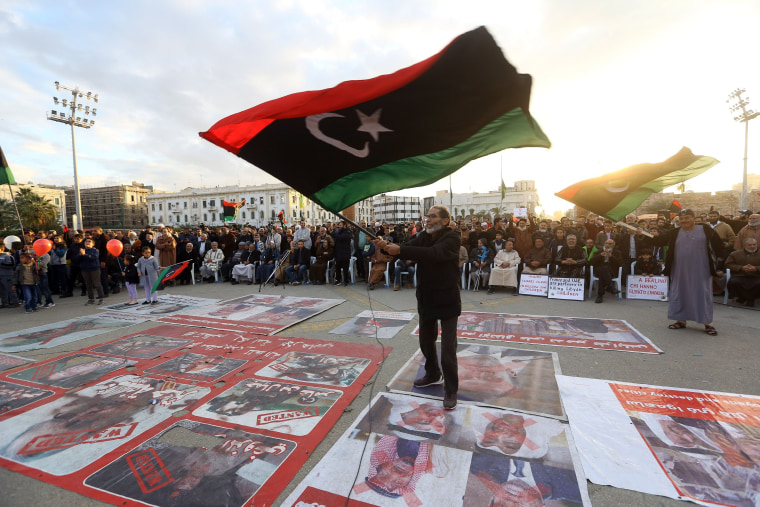TRIPOLI, Libya — Both of Libya's warring factions accused each other of violating a ceasefire Sunday just minutes after it was supposed to take effect.
The truce, which was proposed by Russia and Turkey, was supposed to have been the first break in fighting in months, and the first brokered by international players.
It comes more than nine months into an offensive on Tripoli by the eastern-based Libyan National Army (LNA) led by Khalifa Haftar.
Hours after both sides declared they’d observe the deal, the Tripoli-based government issued a statement that accused the ex-general’s forces of violating the ceasefire in the capital.
The government said if it happened again they would “respond violently and harshly.”
For its part the LNA accused forces loyal to the internationally recognized Government of National Accord (GNA) of similarly violating the truce.
Turkey's defense ministry said it had observed that all sides were trying to abide by the ceasefire, and that the situation was calm except for "one or two separate incidents".
Any attempt to impose a lasting cease-fire will be hard to enforce because of the splintered nature of Libya's military coalitions, with disparate factions and foreign fighters deployed on both sides. Both sides refer to each other as militias.
The cease- fire call came after a recent escalation of fighting around Tripoli, and the LNA's advance into Sirte, a strategically important city midway along Libya's coastline.
The faltering truce also comes as Libya is on the brink of a major escalation, with foreign backers of the rival Libyan governments stepping up their involvement in the oil-rich nation’s conflict.
The east-based government, backed by Hifter’s forces, is supported by the United Arab Emirates and Egypt, as well as France and Russia. The western, Tripoli-based government receives aid from Turkey, Qatar and Italy.
The United Nations and European powers, along with Libya’s allies in the region, have been calling for a peace summit to happen in Berlin early this year that would bring together the leaders of the rival governments.
The fighting has threatened to plunge Libya into violent chaos rivaling the 2011 conflict that ousted and killed longtime dictator Moammar Gadhafi.
